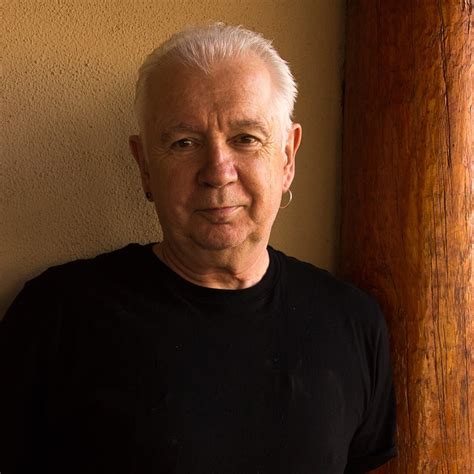A Quote by Plato
The learning and knowledge that we have,is,at the most,but little compared with that of which we are ignorant.
Related Quotes
All political theories assume, of course, that most individuals are very ignorant. Those who plead for liberty differ from the rest in that they include among the ignorant themselves as well as the wisest. Compared with the totality of knowledge which is continually utilized in the evolution of a dynamic civilization, the difference between the knowledge that the wisest and that the most ignorant individual can deliberately employ is comparatively insignificant.
Each member of society can have only a small fraction of the knowledge possessed by all, and...each is therefore ignorant of most of the facts on which the working of society rests...civilization rests on the fact that we all benefit from knowledge which we do not possess. And one of the ways in which civilization helps us to overcome that limitation on the extent of individual knowledge is by conquering intelligence, not by the acquisition of more knowledge, but by the utilization of knowledge which is and which remains widely dispersed among individuals.
Knowledge is the parent of knowledge. He who possesses most of the information of his age will not quietly submit to neglect its current acquisitions, but will go on improving as long as means and opportunities offer; while he who finds himself ignorant of most things, is only too apt to shrink from a labour which becomes Herculean.
That which is received from without can be compared with knowledge. It leads to believing, which is seldom strong enough to motivate to action. That which is confirmed from within after it is contacted from without, or that which is directly perceived from within (which is my way) can be compared with wisdom. It leads to a knowing, and action goes right along with it.
There is oftentimes a great deal of knowledge where there is but little wisdom to improve that knowledge. It is not the most knowing Christian but the most wise Christian that sees, avoids, and escapes Satan's snares. Knowledge without wisdom is like mettle in a blind horse, which is often an occasion of the rider's fall.
The number one problem in academia today is not ignorant students but ignorant professors, who have substituted narrow "expertise" and "theoretical sophistication" (a preposterous term) for breadth and depth of learning in the world history of art and thought... Art is a vast, ancient interconnected web-work, a fabricated tradition. Overconcentration on any one point is a distortion. This is one of the primary reasons for the dullness and ineptitude of so much twentieth-criticism, as compared to nineteenth-century belles-lettres.
For the little that one has reflected on the origin of our knowledge, it is easy to perceive that we can acquire it only by means of comparison. That which is absolutely incomparable is wholly incomprehensible. God is the only example that we could give here. He cannot be comprehended, because he cannot be compared. But all which is susceptible of comparison, everything that we can perceive by different aspects, all that we can consider relatively, can always be judged according to our knowledge.
Compared with the person who is conscious of his despair, the despairing individual who is ignorant of his despair is simply a negativity further away from the truth and deliverance. . . . Yet ignorance is so far from breaking the despair or changing despair to nondespairing that it can in fact be the most dangerous form of despair. . . . An individual is furthest from being conscious of himself as spirit when he is ignorant of being in despair. But precisely this-not to be conscious of oneself as spirit-is despair, which is spiritlessness. . . .
Knowledge about yourself binds, weighs, ties you down; there is no freedom to move, and you act and move within the limits of thatknowledge. Learning about yourself is never the same as accumulating knowledge about yourself. Learning is active present and knowledge is the past; if you are learning to accumulate, it ceases to be learning; knowledge is static, more can be added to it or taken away from it, but learning is active, nothing can be added or taken away from it for there is no accumulation at any time.
I hold all knowledge that is concerned with things that actually exist - all that is commonly called Science - to be of very slight value compared to the knowledge which, like philosophy and mathematics, is concerned with ideal and eternal objects, and is freed from this miserable world which God has made.
It is better to have but little knowledge with humility and understanding, than great learning which might make you proud. For a person's merits are not to be estimated by having many visions, or by knowledge of the bible, or by being placed in a higher position; but by being grounded in true humility, and by seeking always, purely, and entirely, the honor of God.
Can any rational person believe that the Bible is anything but a human document? We now know pretty well where the various books came from, and about when they were written. We know that they were written by human beings who had no knowledge of science, little knowledge of life, and were influenced by the barbarous morality of primitive times, and were grossly ignorant of most things that men know today.
First therefore let us seek the dignity of knowledge in the archetype or first platform, which is in the attributes and acts of God, as far as they are revealed to man and may be observed with sobriety; wherein we may not seek it by the name of Learning; for all Learning is Knowledge acquired, and all Knowledge in God is original: and therefore we must look for it by another name, that of Wisdom or Sapience, as the Scriptures call it.





































